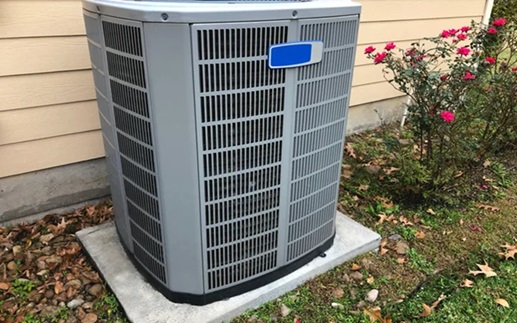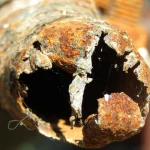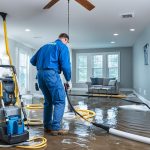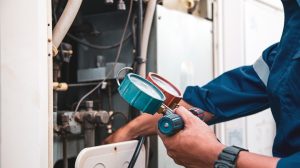
When it comes to replacing your HVAC system, one of the most important factors to consider is the SEER rating. SEER, or Seasonal Energy Efficiency Ratio, is a key measure of an HVAC system’s energy efficiency. Understanding what SEER is and why it matters can help you make a smarter choice when selecting a new system, ultimately saving you money on energy bills while keeping your home comfortable year-round.
What is SEER?
SEER stands for Seasonal Energy Efficiency Ratio. It is a measurement used to determine the efficiency of an air conditioning unit or heat pump. The SEER rating is calculated by dividing the cooling output (measured in BTUs) by the energy consumed (measured in watt-hours) over an entire cooling season. The higher the SEER number, the more efficient the system is at cooling your home for each unit of energy it uses.
For example, a system with a SEER rating of 16 is more energy-efficient than one with a SEER rating of 13. This means that the higher the SEER, the lower the energy consumption required to cool your home, which leads to reduced utility bills and less strain on the environment.
Why Does SEER Matter for HVAC Replacement?
1. Lower Energy Bills
One of the main reasons SEER ratings are so important is that they directly affect your energy consumption. A higher SEER rating means your HVAC system will consume less energy to cool your home, translating to lower monthly energy bills. While a higher-efficiency system may come with a slightly higher upfront cost, the long-term savings can make the investment worthwhile.
For example, if you replace an older system with a lower SEER rating (such as 10) with a new system that has a higher SEER rating (such as 16), you could see substantial savings on your electricity bills over time.
2. Better Comfort
In addition to improving energy efficiency, higher SEER-rated systems typically offer better cooling performance. These systems are designed to maintain consistent temperatures and operate more smoothly, providing a more comfortable environment. A well-maintained high-SEER HVAC system can keep your home cooler on hot days without requiring excessive energy consumption.
3. Environmentally Friendly
Using a high-SEER HVAC system not only benefits your wallet, but it’s also better for the environment. By using less energy, a high-SEER system reduces the demand on power plants, which helps to decrease greenhouse gas emissions. If you’re looking to reduce your carbon footprint, opting for a higher-efficiency HVAC unit is a great way to contribute to environmental conservation.
4. Compliance with New Regulations
The U.S. Department of Energy (DOE) has set new standards for SEER ratings in recent years. As of 2023, HVAC systems sold in the U.S. are required to have a minimum SEER rating of 14 for residential units in the southern regions and 13 in northern regions. This ensures that only energy-efficient systems are available to consumers, pushing the HVAC industry toward greener technologies. By replacing your old system with a high-SEER unit, you are ensuring your home meets these standards and is up-to-date with energy-saving technologies.
5. Increased System Longevity
Higher SEER systems are typically designed with advanced technologies and components that can increase the longevity of the unit. While these systems may cost more upfront, they often last longer and require fewer repairs, ultimately saving you money over the lifetime of the system.
How to Choose the Right SEER Rating for Your Home
When selecting an HVAC system for replacement, it’s important to consider factors like the size of your home, your local climate, and your budget. While higher SEER systems are more energy-efficient, they also come with a higher initial cost. However, the increased energy savings over time can often outweigh the higher price.
- Climate: In hotter climates, a higher SEER rating can provide greater energy savings since the system will be used more frequently. In cooler climates, a lower SEER system may be sufficient.
- Home Size: Larger homes may benefit from a system with a higher SEER rating since it will need to cool a larger area more efficiently.
- Budget: Consider your budget and long-term savings. Although high-SEER systems are more expensive, you’ll save on energy bills in the long run.
Ready to Replace Your HVAC System?
Choosing the right HVAC system for your home is an important decision that impacts both your comfort and energy efficiency. Understanding SEER ratings and their benefits can help you make the right choice when replacing your HVAC system. If you’re looking to improve your home’s energy efficiency, reduce cooling costs, and boost comfort, a high-SEER HVAC system is a great option.
Contact us today to learn more about how you can improve your home’s cooling efficiency with a high-SEER HVAC system! Our team of experts can help you select the perfect system for your needs and ensure a seamless installation process. Don’t wait—start saving on your energy bills today!
This article was written by a professional at https://mannixhvac.com/, a trusted name in HVAC solutions since 2010. Founded by Jerry Mannix, a seasoned expert with over 30 years of experience, Mannix Heating & Cooling is dedicated to putting customers first, providing honest assessments, and delivering top-quality heating and cooling services. With a team of skilled technicians and a commitment to excellence, Mannix ensures your home stays comfortable year-round.







